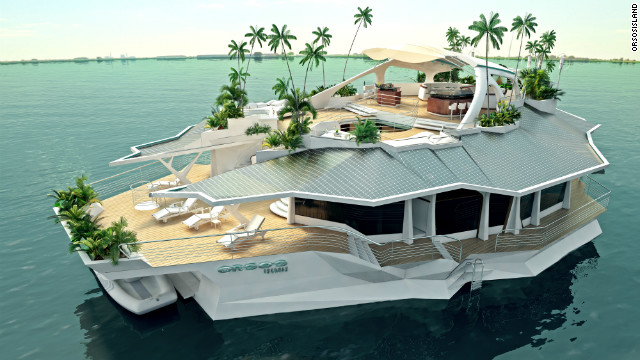 Do you crave the seclusion of your own private island, but hate being tied down in one place? If so, an Austrian firm has developed the solution to your troubles -- a man-made floating "island", complete with two small diesel engines for whenever you fancy a change of scenery.
Do you crave the seclusion of your own private island, but hate being tied down in one place? If so, an Austrian firm has developed the solution to your troubles -- a man-made floating "island", complete with two small diesel engines for whenever you fancy a change of scenery.
The oval-shaped "Orsos Island" has been designed to combine the mobility of a yacht with the comfort of a house. It offers six bedrooms spread over three floors and 1,000 square meters -- nearly four tennis courts -- worth of luxury living space.
Although it doesn't come with an actual tennis court, those longing for some sub-aquatic snooker will be relieved to learn that there is a large games room in the island's "hull." The underwater karaoke suite, meanwhile, is ideal for those who's singing voice is best kept a safe distance from civilization.
The island also comes complete with all the usual ocean-bound comforts of the mega-rich: Jacuzzi, barbeque, sun loungers, minibar, stately dining room and, of course, aquarium.
The price tag for all of this is certainly more than you'd expect to pay for a mainland mansion but, at $6.5 million, it falls well below the average cost of the gigayatchts and Carribean Islands currently favored by the fabulously wealthy.
"Since we launched there has been an unbelievable amount of interest in the island. Everyday I get inquiries from people all over the world including the U.S., Europe, Middle East and China," said Elizabeth Recsy, Orsos Island's head of communications.
"So far there doesn't seem to be a typical customer. I have spoken to private people looking for a luxury retreat, investors looking for a good deal and hotel chains who want to branch out and try something different," she added.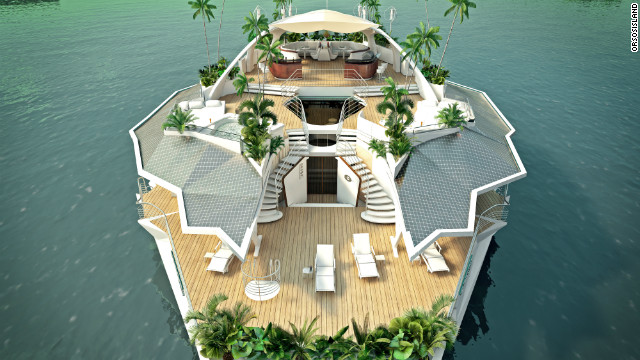

The island is the passion project of Hungarian-born entrepreneur Gabor Orsos, a former hotelier who wanted to combine the best features of luxury hotels with the flexibility that a superyacht provides.
Measuring 37 meters long, the island can be anchored anywhere in the world its owner fancies. But, although it resembles the "Millennium Falcon" from "Star Wars", the "Orsos Island" is unable to reach tropical destinations at lightening speed, as its diminutive diesel engines are equipped for short journeys only. Instead, the company recommends that its owners use a towboat or cargo ship for long haul moves.
To boost its green credentials, the designers have incorporated 160 square meters of solar panels on the roof, as wells as wind generators that can produce 28-30 kilowatt hours of power (kwh) -- the average daily consumption of a family household.
"The maximum power usage that can occur on the island when everything is used at the same time is calculated to be 45 kwh. In those cases the two diesel engines are used to cover the increased energy needs," said Recsy.
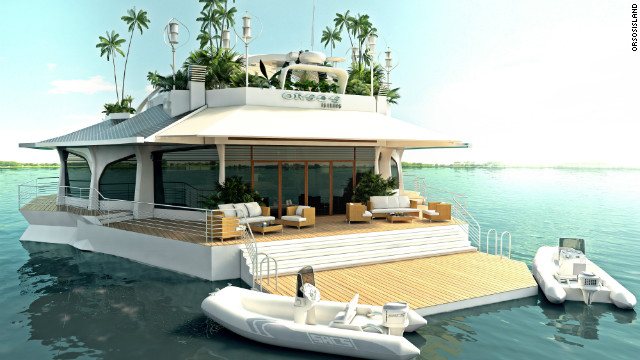
If the island's owners inadvertently find themselves as island castaways, the vessel also has its own desalination system, capable of converting 12,000 liters seawater to drinking water, using the process of "reverse osmosis."
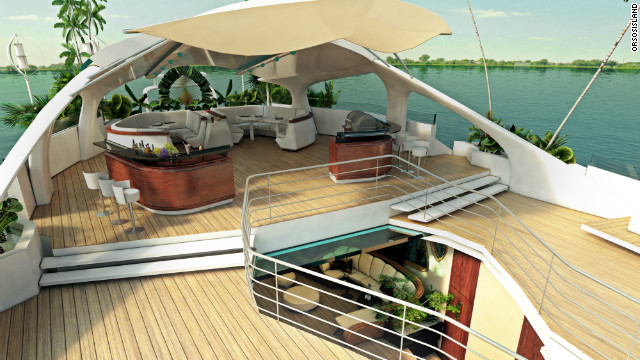
According to Recsy, the design phase of the island was completed over a month ago and the company is currently in the production preparation phase: "We have several pre-orders and we are starting to build the islands early next year in our facilities in central Europe."
With the production time set to drop from 24 months to under a year as the company expands, the floating "Orsos Islands" might very soon become a not-too-permanent fixture on the horizon.
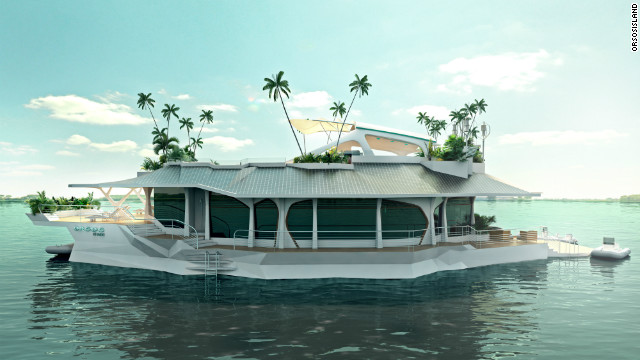
No comments:
Post a Comment